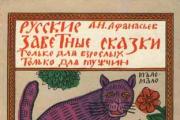Presentation on the topic "Goncharov Ivan Alekseevich. Biography." Lesson "I.A. Goncharov. Life and creative path" Presentation on the topic of potters in literature
Slide 2
BEGINNING June 12, 1812 - born into a merchant family in Simbirsk 1822-1830 - Moscow Commercial School 1831-1834 - verbal department of the philosophical department of Moscow University
Slide 3
GROWING UP 1835 - moved to St. Petersburg and began serving in the Ministry of Finance 1846 - acquaintance with V.G. Belinsky and the beginning of cooperation with the Sovremennik magazine, which, however, did not become a friendship, since in his political views Goncharov was very moderate liberal Writers of the Sovremennik circle 1856 I. A. Goncharov, I. S. Turgenev, L. N. Tolstoy, D. V. Grigorovich, A. V. Druzhinin, A. N. Ostrovsky
Slide 4
FROM DISTANT WANDERINGS... 1852 – 1855 – circumnavigation of the world on the frigate “Pallada” as secretary to the head of the expedition, Vice Admiral Putyatin 1855-1857 – travel essays “Frigate “Pallada”
Slide 5
ON PUBLIC AFFAIRS 1856 - transferred from the Ministry of Finance to the Ministry of Education to the position of censor 1865 - member of the Main Directorate for Press Affairs 1867 - retired with the rank of general In the last years of his life he often travels abroad for treatment 1891 September 27 - died of pneumonia. Buried in St. Petersburg at the Volkov cemetery Photo of 1861.
Slide 6
TRILOGY ABOUT RUSSIAN LIFE “ORDINARY HISTORY” 1847 "OBLOMOV" 1859 "BREAK" 1869 These novels reflect the essential aspects of the life of Russian society of the 40s - 60s. They are united not by common characters, but by a common theme and a group of characters whose features are repeated
Slide 7
PROBLEMS OF THE NOVELS TWO WAYS OF RUSSIAN LIFE PATRIARCHAL BOURGEOIS Serfdom, inertia and monotony of landowner life Active attitude to life, but outright selfishness and businessmanship
Slide 8
HEROES OF NOVELS Image of Alexander Aduev: a nobleman adapts to life and is reborn into a bourgeois Image of Oblomov: a nobleman capitulates to reality Image of Raisky: a nobleman leaves life, getting carried away by art
Slide 9
Novel "An Ordinary Story"
Slide 10
“An Ordinary History” shows “the breakdown of old concepts and morals - sentimentality, caricatured exaggeration of feelings of friendship and love, poetry and idleness” I. A. Goncharov
Slide 11
REBIRTH
Slide 12
Roman "Oblomov"
Slide 13
“As long as there is at least one Russian left, Oblomov will be remembered.” I. S. TURGENEV 1848 – first version of “Oblomov’s Dream” March 1849 – first publication of “Oblomov’s Dream” 1852 – work interrupted due to travel November 29, 1855 – first part of the novel almost completed June - July 1857 - “Marienbad miracle”: the novel is almost completed January - April 1859 - the magazine “Otechestvennye zapiski” introduces readers to the new novel by I. A. Goncharov “Without any exaggeration, we can say that at the present moment there is not a single city in all of Russia , wherever they read “Oblomov”, did not praise “Oblomov”, did not argue about “Oblomov” - this is how the critic A.V. Druzhinin assessed the appearance of the novel.
Slide 14
“The story of how the good-natured sloth Oblomov lies and sleeps and how neither friendship nor love can awaken and raise him is not God knows what an important story. But Russian life is reflected in it, in it a living, modern Russian type appears before us, minted with merciless rigor and correctness...” N. A. Dobrolyubov 1859 FIRST RESPONSE “Oblomov and Oblomovism: it was not without reason that these words spread all over Russia and became words , forever ingrained in our speech. They explained to us a whole range of phenomena of our contemporary society, they put before us a whole world of ideas, images and details, which until recently were not fully conscious to us, appearing to us as if in a fog...” A. V. Druzhinin 1859
Slide 15
PLOT FEATURES “It is, if you like, really drawn out. In the first part, Oblomov lies on the sofa: in the second, he goes to the Ilyinskys and falls in love with Olga, and she falls in love with him; in the third, she sees that she was mistaken about Oblomov, and they separate; in the fourth, she marries Stolz, and he marries the owner of the house where he rents an apartment. That’s all. No external events, no obstacles (except perhaps for the opening of the bridge across the Neva, which stopped Olga’s meetings with Oblomov), no extraneous circumstances interfere with the novel. Oblomov’s laziness and apathy are the only spring of action in his entire story.” N. A. Dobrolyubov “What is Oblomovism?”
Slide 16
FEATURES OF THE COMPOSITION OBLOMOVKA VYBORG SIDE OF OBLOMOV OBLOMOV STOLTZ OLGA OLGA Agafya Matveevna
Slide 17
“Almost nothing attracted him from home, and every day he settled more and more firmly in his apartment... He was not used to movement, to life, to crowds and bustle...” WHAT DETAILS OF OBLOMOV’S PORTRAIT WOULD YOU NOTE? DOES THE INTERIOR HELP CREATE AN IMAGE?
Slide 18
OBLOMOV'S VISITORS 1. "Appearance" of the gentleman. Portrait of a visitor. 2. "Don't come, don't come... you're out of the cold!" 3. Conversation and invitation to Ekateringof. 4. Ilya Ilyich’s refusal. 5. “I have two misfortunes...” 6. The visitor’s refusal to listen to Oblomov. 7. The hero’s reflection on the “unfortunate” visitor. WHAT IS THE GENERAL SCHEME OF ALL VISITS? REMEMBER IN WHICH APPOINTMENT THE AUTHOR USED THE SAME DEVICE?
Slide 19
WHAT IS IT WORTH GIVING UP OF THE SOFA FOR? VOLKOV SUDBINSKY PENKIN ALEXEEV? Social life Career Literary activity???????????? parasite
Slide 20
“WHY AM I LIKE THIS?” (“Oblomov’s Dream”, part 1, chapter IX) Restore the composition of the dream: highlight the main thematic parts. Indicate the positive and negative features of life in Oblomovka. Compare Ilyusha at 7 years old and at 14: what changes have occurred in the hero and why? Does our attitude towards Oblomov change after reading this chapter?
Slide 21
“What a wonderful land!..”
Slide 22
“The standard of life was ready and taught to them by their parents, and they adopted it, also ready-made, from their grandfather, and grandfather from their great-grandfather, with a covenant to preserve its integrity and inviolability... What did they have to think about and worry about...? Nothing is needed: life, like a calm river, flowed past them...” HOW ILYUSHA BECAME ILYA ILYICH
Slide 23
CRITICS WRITE “So, “Oblomov” is a “big fairy tale.” It is not difficult to guess that in this case, “Oblomov’s Dream” should rightfully be considered its core. “Dream” is a figurative and semantic key to understanding the entire work, the ideological and artistic focus of the novel. The reality depicted by Goncharov extends far beyond Oblomovka, but the true capital of the “sleepy kingdom” is, of course, the family patrimony of Ilya Ilyich...” Y. M. Loschits “The Imperfect Man” 1996 “Oblomov’s Dream” is a magnificent episode, which will remain in our literature. In my opinion, the dream is nothing more than an attempt by Goncharov himself to understand the essence of Oblomov and Oblomovism. Goncharov apparently felt, as I, for example, felt when reading the novel, that Oblomov was sweet and attractive to him.” A. V. Druzhinin “Oblomov”. Novel by A. I. Goncharov 1859
Slide 24
OBLOMOV AND STOLTZ
Slide 25
AND OR STOLTZ OBLOMOV MOVEMENT ACTIVITY LABOR RATIONALISM PRACTICISM DESIRE TO SUCCESS AND MAKE CAPITAL LYING LAZINESS AND APATHY LACK OF WORK DREAMY IMPACTICALITY DESIRE FOR PEACE AND PEACE
Slide 26
HOW TO LIVE? (Argument of heroes in 3-4 chapter II part.) “Life: life is good! What to look for there? interests of the mind, heart? Look where the center is around which it all revolves: it is not there, there is nothing deep that touches the living. All these are dead people, sleeping people, worse than me, these members of the council and society! What drives them in life? After all, they don’t lie down, but scurry about every day like flies, back and forth, but what’s the point?.. Underneath this comprehensiveness lies emptiness, a lack of sympathy for everything!.. No, this is not life, but a distortion of the norm, the ideal of life, which Nature has indicated a goal to man.” “All life is thought and work..., even though it is unknown, dark, but continuous... work is the image, content, element and purpose of life...”
Slide 27
“weak... pale, the idea barely peeks out of him” I. Goncharov “Stolz is the antidote to Oblomov” N. Dobrolyubov “Stolz does not inspire me with any confidence. The author says that he is a magnificent fellow, but I don’t believe him. This is a clever beast who thinks very well of herself and is pleased with herself. It’s half composed, three-quarters stilted.” A.P. Chekhov “... Stolz is an unsuccessful, fictitious figure. He loses all the more in our eyes because he stands next to Oblomov, like a machine gun with a living person.” D. S. Merezhkovsky 1890 “And Stolz’s bourgeois pathos was at that moment much more progressive for Russia than feudal stagnation... Goncharov argues that such biculturalism is most promising for the development of the human personality, and therefore, its activities for the benefit of people...” V. K. Kantor 1989 “... this is an ordinary person who does not aspire to be extraordinary people, a person who is not at all elevated by the novelist to the ideal of our time.” A V. Druzhinin CRITICISM ABOUT STOLTZ
Slide 28
AUTHOR'S ATTITUDE INTERPRETING THE AUTHOR'S POSITION 1. The author is an adherent of the “Stoltsev” attitude to life, sympathizing with Oblomov, but not sharing the worldview of Ilya Ilyich 2. He (the author) recognizes and demonstrates the superiority of Oblomov’s contemplation over the limitations of the rationalist and pragmatist Stolz 3. In the novel, two “ truths" - "Stoltsevskaya" and "Oblomovskaya" - both are limited, not absolute, ideally their synthesis is desirable
Slide 29
OBLOMOV AND OLGA
Slide 30
“... But if she were turned into a statue, she would be a statue of grace and harmony.” What attracted Oblomov to Olga Ilyinskaya? Why did Olga choose Oblomov over Stolz? What prevented the mutual happiness of the heroes?
Slide 31
Which illustration do you think is more reliable? “You are meek and honest, Ilya; you are gentle... like a dove; you hide your head under your wing - and don’t want anything more; you’re ready to coo under the roof all your life... but I’m not like that: this is not enough for me, I need something else, but I don’t know what!” “I LOVED THE FUTURE OBLOMOV!”
Slide 32
“She loved Oblomov so completely and a lot; she loved Oblomov - as a lover, as a husband and as a master; But she couldn’t tell this to anyone... She was given the ability to simply love.” She “instantly weighed her power over him, and she liked this role of a guiding star, a ray of light that she would pour over the stagnant lake and be reflected in it.” OLGA AGAFYA MATVEEVNA
Slide 33
OBLOMOV’S CHOICE “Oblomov chose Agafya Matveevna not because she has seductive elbows and that she cooks pies well, but because she is much more of a woman than Olga. If Stolz is the antipode of Oblomov, then Pshenitsyna is to the same extent the antipode of Olga, “head”, rational-experimental love, which is opposed to spiritual-heart love, about which we can say that it is “as old as the world.” Marrying Agafya Matveevna is a combination of Oblomov’s image and spirit of life.” A. Grigoriev 1859
Slide 34
CRITICISM ABOUT OLGA ILINSKAYA “...Olga does not love Oblomov, she does not love this morally and physically stale person; she loves only the Oblomov whom she hopes to create with her own hands.” N. Mikhailovsky “In her development, Olga represents the highest ideal that a Russian artist can now evoke from present-day Russian life... In her, more than in Stolz, one can see a hint of a new Russian life; One can expect from her a word that will burn and dispel Oblomovism...” N. A. Dobrolyubov “Olga is a moderate, balanced missionary. She does not have a desire to suffer, but a sense of duty... Her mission is modest - to awaken the sleeping soul. She fell in love not with Oblomov, but with her dream. Timid and gentle Oblomov, who treats her so obediently and so bashfully, loved her so simply, was only a convenient object for her girlish dreams and games of love.” I. Annensky
Slide 38
Oblomovism (learned from Goncharov’s story): Russian lethargy, laziness, inertia, indifference to social issues V. I. Dal “Dictionary of the Living Great Russian Language” 2. Oblomovism - apathy, lack of will, a state of inactivity and laziness Modern explanatory dictionary 3. Oblomovism, according to named after the hero of Goncharov’s novel “Oblomov”, is a common word to denote social stagnation, routine, apathy Small Encyclopedic Dictionary of Brockhaus and Efron 4. Oblomovshchina - the phenomenon of the landowner system depicted by Goncharov during the era of the collapse of serfdom in Russia Literary Encyclopedia OBLOMOVSHCHINA
Slide 39
“On the outside, everything was done with them like others. They got up, although not at dawn, but early; they loved to sit for a long time over tea, sometimes they even seemed to be lazily silent, then they went to their own corners or worked together, had lunch, went to the fields, played music... like everyone else, as Oblomov dreamed of... Only there was no doze, no despondency among them ; They spent their days without boredom and apathy; there was no sluggish look, no words, their conversation never ended, it was often heated.” “You and I are not Titans... we will not go, with the Manfreds and Fausts, into a daring struggle with rebellious issues, we will not accept their challenge, we will bow our heads and humbly endure the difficult moment...” I. A. Goncharov “Oblomov” ( part 4) LIFE IN THE STOLTZ FAMILY
Slide 40
In him, an honest, faithful heart is more valuable than any mind! He fell from the tremors, cooled down, fell asleep, finally, killed, disappointed, having lost the strength to live, but did not lose honesty and loyalty. His heart did not emit a single false note, nor did any dirt stick to it. No elegant lie will seduce him, and nothing will lure him onto a false path; let a whole ocean of rubbish and evil swirl around him, let the whole world be poisoned and go topsy-turvy - Oblomov will never bow to the idol of lies. There are few such people; they are rare; these are pearls in the crowd! ““Oblomov” (part 4, chapter VIII) I. A. Goncharov about Oblomov
Slide 41
... We love Ilya Ilyich Oblomov. He is dear to us as a man of his region and his time, as a kind and gentle child, capable, under different circumstances of life and different development, of deeds of true love and mercy. He is dear to us as an independent and pure nature... He is dear to us because of the truth with which his entire creation is permeated, because of the thousand roots with which the poet-artist connected him with our native soil. And finally, he is dear to us as an eccentric who, in our era of selfishness, tricks and lies, peacefully ended his life, without offending a single person, without deceiving a single person and without teaching a single person anything bad. "Oblomov." Novel by I. A. Goncharov" by A. V. Druzhinin about Oblomov
Slide 42
“It is impossible to sympathize with such individuals, because they are a burden to both themselves and society, but it is also impossible to despise them unconditionally: there is too much truly human in them...” “Oblomov” by I. Goncharov D. I. Pisarev about Oblomov
Slide 43
STOLTZ OR OBLOMOV? Will Andrei Ilyich Oblomov, Oblomov’s son, raised by Stolz, help Russia?
View all slides
No singer or writer can know from his very birth that he will become great and famous. The same thing happened with I. A. Goncharov, who only in his youth realized that creativity was his calling. The presentation of “Potters” will tell you what the life of a writer can be like. Among the many events that occurred in the life of the future writer, the death of his father can be called a turning point, which radically changed the life of the writer. A presentation about Goncharov’s biography will help both students and adults more accurately learn the chronology of events in the life of the great Russian writer.
It is recommended to use this presentation in class or for independent study. The life and work of Goncharov is an interesting story that will help you find any moments that are connected with the heroes of his works. It is impossible to understand the writer’s works without knowing his biography. A class discussion will allow us to more accurately characterize the life of the great Russian writer Ivan Aleksandrovich Goncharov. Creativity and the life of a creative person are always intertwined; having learned the biography of a person, we can understand him.
You can view the slides on the website or download a presentation on the topic “Potters” in PowerPoint format from the link below.
Biography of Goncharov  Childhood
Childhood  House of Goncharovs
House of Goncharovs  Education
Education  Goncharov in his youth
Goncharov in his youth  Life after university
Life after university  The beginning of creativity
The beginning of creativity  Around the world trip
Around the world trip  Creativity flourishes
Creativity flourishes  The third part of “The Cliff”
The third part of “The Cliff”  Last years
Last years  Memorial gazebo
Memorial gazebo  House in Ulyanovsk
House in Ulyanovsk
The life and work of Ivan Aleksandrovich Goncharov The presentation was prepared by the teacher of Russian language and literature Lendyl Irina Nikolaevna

Slide 2
Ivan Goncharov was born on June 6, 1812 in Simbirsk. His father Alexander Ivanovich and mother Avdotya Matveevna (nee Shakhtorina) belonged to the merchant class. The future writer spent his childhood in the large stone house of the Goncharovs, located in the very center of the city, with an extensive courtyard, garden, and numerous buildings.

Slide 3
When Goncharov was seven years old, his father died. In the subsequent fate of the boy, in his spiritual development, his godfather Nikolai Nikolaevich Tregubov played an important role. It was a retired sailor. He was distinguished by his open-mindedness and was critical of some phenomena of modern life. “Good sailor” - this is how Goncharov gratefully called his teacher, who actually replaced his own father. The writer recalled: “Our mother, grateful to him for the difficult part of taking care of our upbringing, took upon herself all the worries about his life and household. His servants, cooks, coachmen merged with our servants, under her control - and we lived in one common yard. The entire material part fell to the lot of the mother, an excellent, experienced, strict housewife. Intellectual concerns fell to him.”

Slide 4
Education Goncharov received his initial education at home, under the supervision of Tregubov, and then at a private boarding school. At the age of ten he was sent to Moscow to study at a commercial school. The choice of educational institution was made at the insistence of the mother. Goncharov spent eight years in school. These years were difficult and uninteresting for him. Goncharov's spiritual and moral development, however, took its own course. He read a lot. His true mentor was Russian literature.

Slide 5
Goncharov is already eighteen. The time has come to think about your future. Even in childhood, the passion for writing that arose, the interest in the humanities, especially in literary arts, all this strengthened his idea to complete his education at the Faculty of Literature of Moscow University. In August 1831, after successfully passing the exams, he was enrolled there.

Slide 6
The three years spent at Moscow University were an important milestone in Goncharov’s biography. It was a time of intense reflection - about life, about people, about myself. At the same time as Goncharov, Belinsky, Herzen, Ogarev, Stankevich, Lermontov, Turgenev, Aksakov and many other talented young people studied at the university, who later left their mark on the history of Russian literature.

Slide 7
Life after university Having graduated from university in the summer of 1834, Goncharov felt, by his own admission, a “free citizen”, before whom all paths in life were open. . He was attracted by the prospect of an intense spiritual life in the capitals, communication with interesting people there. But there was another, secret dream connected with his long-time passion for writing. He decided to definitely leave drowsy, boring Simbirsk. And he didn’t leave. The governor of Simbirsk persistently asked Goncharov to take the position of his secretary

Slide 8
Service in the position The Simbirsk governor persistently decided to do it with his own hands, asking Goncharov to take the position of his secretary without anyone’s help. After thought and hesitation, the future. Upon arrival in the capital, Goncharov accepted this offer, but went to the trade ministry of the Ministry of Finance, where it turned out to be ungrateful. boring However, the impressions of the bureaucratic subsequently living mechanism of the system, the department offered him an external position as a translator of foreign correspondence. The service turned out to be not very burdensome for Goncharov. She is, to some extent, a writer. After eleven months of providing financial support for Goncharov and staying in Simbirsk, he left, leaving time for independent work in St. Petersburg. These also worked well in literary studies and reading.

Slide 9
The beginning of creativity The serious creativity of the writer gradually begins. It was formed under the influence of those sentiments that prompted the young author to take an increasingly ironic attitude towards the romantic cult of art. The 40s marked the beginning of the heyday of Goncharov’s work. This was an important time in the development of Russian literature, as well as in the life of Russian society as a whole.

Slide 10
“Ordinary History” In the spring of 1847, “Ordinary History” was published on the pages of Sovremennik. In the novel, the conflict between “realism” and “romanticism” appears as a significant conflict in Russian life. Goncharov called his novel “Ordinary History,” thereby emphasizing the typical nature of the processes that were reflected in this work.

Slide 11
Voyage on the frigate "Pallada" In October 1852, Ivan Goncharov, who served as a translator in the Foreign Trade Department of the Ministry of Finance, was appointed secretary of Admiral Putyatin. From the very first days of the trip, Goncharov began keeping a detailed travel journal (the materials of which formed the basis for the future book “Frigate Pallada”). The expedition lasted almost two and a half years. Goncharov visited England, South Africa, Indonesia, Japan, China and many small islands and archipelagos of the Atlantic, Indian and Pacific Oceans. Having landed on the shores of the Sea of Okhotsk, Goncharov traveled overland across Russia and returned to St. Petersburg on February 13, 1855. Already in the April book of “Notes of the Fatherland” for 1855, the first essay about the journey appeared. And in 1858, the entire essay was published as a separate publication. The cycle of travel essays “Frigate Pallada” is a kind of “writer’s diary”. The book immediately became a major literary event, striking readers with the richness and variety of factual material and its literary merits. The book was perceived as the writer’s entry into a large world that was unfamiliar to the Russian reader. For Russia in the 19th century, such a book was almost unprecedented.

Slide 12
The flourishing of creativity In 1859, the word “Oblomovism” was first heard in Russia. Through the fate of the main character of his new novel, Goncharov showed a social phenomenon. However, many saw in the image of Oblomov also a philosophical understanding of the Russian national character, as well as an indication of the possibility of a special moral path opposing the bustle of all-consuming “progress”. Goncharov made an artistic discovery. He created a work of enormous generalizing power.
Description of the presentation by individual slides:
1 slide
Slide description:
2 slide
Slide description:
Childhood Ivan Goncharov was born on June 6 (18), 1812 in Simbirsk. His father Alexander Ivanovich (1754-1819) and mother Avdotya Matveevna (1785-1851) (nee Shakhtorina) belonged to the merchant class. The future writer spent his childhood in the large stone house of the Goncharovs, located in the very center of the city, with an extensive courtyard, garden, and numerous buildings. When Goncharov was nine years old, his father died. In the subsequent fate of the boy, in his spiritual development, his godfather Nikolai Nikolaevich Tregubov played an important role. It was a retired sailor. He was distinguished by his open-mindedness and was critical of some phenomena of modern life. “Good sailor” - this is how Goncharov gratefully called his teacher, who actually replaced his own father.
3 slide
Slide description:
4 slide
Slide description:
Education Goncharov received his initial education at home, under the supervision of Tregubov, and then in a private boarding house. At the age of ten he was sent to Moscow to study at a commercial school. The choice of educational institution was made at the insistence of the mother. Goncharov spent eight years in school. The rest of the time I was sick. These years were difficult and uninteresting for him. Goncharov's spiritual and moral development, however, took its own course. He read a lot. His true mentor was Russian literature. Meanwhile, studying at school became completely unbearable. Goncharov managed to convince his mother of this, and she wrote a petition to exclude him from the list of boarders. Goncharov is already eighteen. The time has come to think about your future. Even in childhood, the passion for writing that arose, the interest in the humanities, especially in literary arts, all this strengthened his idea to complete his education at the Faculty of Literature of Moscow University. A year later, in August 1831, after successfully passing the exams, he was enrolled there.
5 slide
Slide description:
6 slide
Slide description:
Life after university Having graduated from university in the summer of 1834, Goncharov felt, by his own admission, a “free citizen”, before whom all paths in life were open. First of all, he decided to visit his native land, where his mother, sisters, and Tregubov were waiting for him. Simbirsk, in which everything was so familiar from childhood, struck the matured and matured Goncharov, first of all, by the fact that nothing had changed. Everything here resembled a huge sleepy village. This is exactly how Goncharov knew his hometown in childhood, and then in his youth. The governor of Simbirsk persistently asked Goncharov to take the position of his secretary. After thought and hesitation, Goncharov accepts this offer, but the task turned out to be boring and thankless. However, these vivid impressions of the mechanism of the bureaucratic system later came in handy for Goncharov the writer. After eleven months of stay in Simbirsk, he leaves for St. Petersburg. Goncharov decided to build his future with his own hands, without anyone’s help. Upon arrival in the capital, he applied to the Foreign Trade Department of the Ministry of Finance, where he was offered the position of translator of foreign correspondence. The service turned out to be not very burdensome. She to some extent provided Goncharov financially and left time for independent literary studies and reading.
7 slide
Slide description:
The beginning of creativity The serious creativity of the writer gradually begins. It was formed under the influence of those sentiments that prompted the young author to take an increasingly ironic attitude towards the romantic cult of art that reigned in the Maykovs’ house. The 40s marked the beginning of the heyday of Goncharov’s creativity. This was an important time in the development of Russian literature, as well as in the life of Russian society as a whole. Goncharov meets Belinsky and often visits him on Nevsky Prospekt, in the House of Writers. Here in 1846 Goncharov reads criticism of his novel Ordinary History. Communication with the great critic was important for the spiritual development of the young writer. Goncharov himself testified in one of his letters what role Belinsky played for him.
8 slide
Slide description:
Around the world trip and the frigate "Pallada" In October 1852, an important event happened in Goncharov's life: he became a participant in a trip around the world on a sailing warship - the frigate "Pallada" - as secretary to the head of the expedition, Vice Admiral Putyatin. It was equipped to inspect Russian possessions in North America - Alaska, which at that time belonged to Russia, as well as to establish political and trade relations with Japan. Goncharov imagined how many impressions he would enrich himself and his work with. From the very first days of the trip, he begins to keep a detailed travel journal. It formed the basis for the future book “Frigate Pallada.” Goncharov’s trip can only be considered a trip around the world. He returned to St. Petersburg on February 13, 1855, and the first essay appeared in the April book of “Notes of the Fatherland.” Subsequent fragments were published in the Marine Collection and various magazines for three years, and in 1858 the entire work was published as a separate publication. The cycle of travel essays “Frigate Pallada” (1855-1857) is a kind of “writer’s diary”. The book immediately became a major literary event, striking readers with the richness and variety of factual material and its literary merits
Slide 9
Slide description:
The flowering of creativity in 1859 was the first time in Russia that the word “Oblomovshchina” was heard. In the novel, the fate of the main character is revealed not only as a social phenomenon (“Oblomovism”), but also as a philosophical understanding of the Russian national character, a special moral path opposing the bustle of all-consuming “progress”. Goncharov made an artistic discovery. He created a work of enormous generalizing power. The publication of Oblomov and its enormous success among readers secured Goncharov’s fame as one of the most outstanding Russian writers. But Goncharov does not give up his writing and begins his new work - “The Cliff”. However, the writer had to not only write, but also earn money. Having left the post of censor, he lived “on free bread.” In mid-1862, he was invited to the position of editor of the newly established newspaper Severnaya Poshta, which was an organ of the Ministry of Internal Affairs. Goncharov served here for about a year. Then he was appointed to a new position - member of the press council - and his censorship activities began again.
10 slide
Slide description:
Having finished the third part of “The Precipice,” “I wanted to leave the novel entirely without finishing it.” However, I finished it. Goncharov was aware of the work of what scale and artistic significance he was creating. At the cost of enormous efforts, overcoming physical and moral ailments, he brought his “child” to the end. “The Precipice” thus completed the trilogy. Each of Goncharov’s novels reflected a certain stage in the historical development of Russia. For one of them, Alexander Aduev is typical, for another - Oblomov, for the third - Raisky. And all these images were components of one overall holistic picture of the fading era of serfdom. In the mid-19th century, the rivalry between the Russian Empire and the United States of America for influence in the Asia-Pacific region began. By the way, at that time in Russia it was customary to call the United States not as it is now, but somewhat differently - the North American United States, abbreviated as the USA.
To use presentation previews, create a Google account and log in to it: https://accounts.google.com
Slide captions:
Ivan Aleksandrovich Goncharov (1812-1891) SERIOUS ART, LIKE ANY SERIOUS BUSINESS, REQUIRES YOUR WHOLE LIFE. I. Goncharov
The writer was born in 1812 in Ulyanovsk in the family of a wealthy Siberian merchant. The father died early, leaving the family a large fortune “Our house was, as they say, a full bowl... A large yard, even two yards... Our own horses, cows, even goats and rams, chickens and ducks - all this inhabited both yards... in a word, a whole estate, a village..." Goncharov House-Museum in Ulyanovsk
Avdotya Matveevna Goncharova I am proud... that I had such a mother, my thoughts about nothing and no one are so dim, my memory is not so sacred as about her. I. Goncharov - sister A.A. Kirmalova, May 5, 1851
Nikolai Nikolaevich Tregubov After the death of our father, he became more and more accustomed to our family, then he took part in our upbringing... the good sailor surrounded himself with us, took us under his wing, and we became attached to him with children’s hearts, forgot about our real father. He was our mother's best adviser and the leader of our upbringing. I. Goncharov. Memories This is how merchant children received a typically noble upbringing
Education 1) Private boarding school for the priest of Trinity 2) Moscow Commercial School (1822) 3) Moscow University (1831)
We, young men... looked at the university as if it were a sanctuary, and entered its walls with fear and trembling. I. Goncharov. Memoirs of V.G. Belinsky N.P. Ogarev M.Yu. Lermontov K.S. Aksakov
Maikov Nikolai Apollonovich In 1834, having moved to St. Petersburg, he entered the service of the Ministry of Finance as a translator of foreign correspondence. He is actively preparing himself for writing. He is getting close to the family of the famous artist Maykov, whose sons he teaches literature and Latin. Participates in the publication of the handwritten almanac “Snowdrop”, being the author of romantic poems.
L.N. Tolstoy I.S. Turgenev D.V. Grigorovich A.V. Druzhinin A.N. Ostrovsky I.A. Goncharov Editorial board of Sovremennik, 1856
1846 - acquaintance with V.G. Belinsky and the beginning of cooperation with the Sovremennik magazine, which, however, did not become friendship, since in his political views Goncharov was a very moderate liberal. 1849 - a chapter from the future novel, “Oblomov’s Dream,” appeared in the “Literary Collection of Sovremennik” magazine, which suffered from the censor’s pencil. This darkened Goncharov’s mood and suspended his work on the novel for a long time.
1856 - moves from the Ministry of Finance to the Ministry of Education to the position of censor 1865 - member of the Main Directorate for Press Affairs 1867 - retires with the rank of general In the last years of his life, he often travels abroad for treatment Photo of 1861. Further service
“An Ordinary History” 1847 “An Ordinary History” shows “the breakdown of old concepts and mores - sentimentality, caricatured exaggeration of feelings of friendship and love, poetry and idleness” I. A. Goncharov
In 1852, Goncharov, as secretary of Admiral Putyatin, set off on the frigate Pallada on a circumnavigation of the world. Returning from a trip, the writer formalizes his impressions in a book of essays “Frigate “Pallada”
“Oblomov” 1847 - 1859 “The story of how the good-natured sloth Oblomov lies and sleeps and how neither friendship nor love can awaken and raise him is not God knows what an important story. But it reflects Russian life, in it a living, modern Russian type appears before us, minted with merciless severity and correctness...” N. Dobrolyubov “What is Oblomovism?”
“The Cliff” 1869 THE NOVEL “The Cliff” WAS BORN TO ME IN 1849 ON THE VOLGA, WHEN I, AFTER A 14-YEAR ABSENCE, VISITED SIMBIRSK, MY HOMELAND, FOR THE FIRST TIME. I.A. Goncharov
TWO WAYS PATRIARCHAL BOURGEOISE Feudal orders, inertia and monotony of landowner life An active attitude to life, a manifestation of outright selfishness A trilogy about Russian life These novels reflect the essential aspects of the life of Russian society of the 40s - 60s. They are united by the characters' character traits and issues.
The life path of the heroes "An Ordinary Story" Alexander Aduev, a nobleman adapts to life and is reborn into a bourgeois "Oblomov" Ilya Ilyich Oblomov, a nobleman capitulates to reality "Cliff" Alexander of Paradise, a nobleman leaves life, being carried away by art
1891 September 27 – died of pneumonia. Monument to Goncharov in Simbirsk Monument-bust to Goncharov Oblomov’s sofa and slippers
"Oblomov"
1848 – first version of “Oblomov’s Dream” March 1849 – first publication of “Oblomov’s Dream” 1852 – work interrupted due to travel November 29, 1855 – almost completed the first part of the novel June – July 1857 – “Marienbad miracle” "(west of the Czech Republic): the novel is almost completed January - April 1859 - the magazine "Domestic Notes" introduces readers to the new novel by I. A. Goncharov History of creation














